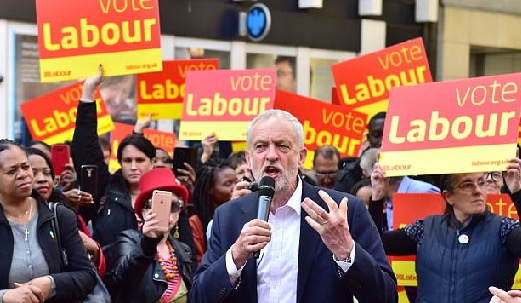
Omnishambles. That splendidly descriptive term was coined in 2009 by the political satire, In the Thick of It. The word itself was uttered by actor Peter Capaldi, more famous nowadays for being Dr Who, and passed into the English language. It was seized on as an apt descriptor for George Osborne’s hapless budget statement in 2012.
Following the events of last week’s General Election, I’m surprised its use hasn’t been resurrected: it’s even more apt a description than the tabloid (and rather clever) Mayhem.
Current Prime Minister Theresa May finds herself running a vulnerable minority government with about as much clout in the forthcoming Brexit negotiations as a mouse attempting to face down a pack of wolves. Yet to hear her speak, last Friday morning, you’d think she’d achieved the “stunning victory” the duplicitous Boris Johnson described.
By contrast, even Tony Blair apologised when, in 2005, he turned his previous landslide majority into a slim one, admitting to voters that he and his government should have listened more.

With Michael Gove back in, a dubious choice for Environment Secretary, Mrs May’s cabinet now has all her party’s leading Brexiteers, bigots, backstabbers, buffoons, betrayers and bullies on board. Perhaps she’s taken that age-old advice to keep her friends close, and her enemies closer: the latter vociferously praise her leadership, lying through their teeth and ignoring the elephant in the room.
The naked opportunism that led the PM to call the election back in April was fuelled by Jeremy Corbyn’s dismal position in opinion polls. Widely reviled and despised in the media, he appeared incapable of organising a small festivity in a brewery, let alone a party – a political party, that is.

Something happened. Someone, somewhere, smartened him up, gave him a good talking to and sent an entirely different Jeremy out to meet the public. He smiled. He joked. He looked visionary. He wowed them.
The previously sour and dour Corbyn became fun: to see a politician smiling and loving people was a marked change from that tediously grey Tory message. The Tory manifesto, a political suicide note, was exacerbated by May’s repetitively schoolmarmish lectures, devoid of warmth or humour, on the need for her “strong and stable government”.
Realising the negative Tory message had backfired, Corbyn revelled in the enthusiasm of those, particularly young voters, whose anger fuelled his campaign. He was energised by the crowds of them who greeted him. Meanwhile, they had learned from the Brexit vote that they needed to turn out and they did – for Labour.
Voters aren’t stupid. Students in particular were seduced, perhaps, by the promise of an end to university fees. It was a great freebie to offer, though without any realistic costing. Much as I have always regretted the introduction of tuition fees, I fear their abolition would have left Higher Education even more chronically underfunded than it used to be. That theory’s unlikely to be tested now.
Whatever myriad and interlinked causes underlie this now-hung parliament, the ruling party has shown itself to be as crass, insensitive and incompetent as many suspected.

Having been so close, Corbyn is now (with his followers) weaving a fantasy that somehow he won. Well, it was a triumph, of sorts.
Other parties got a real kicking. Indeed, the only leader who seems to have displayed real stature, arguably eclipsing even the revitalised Corbyn, was Scottish Tory leader Ruth Davidson. Will she be persuaded to come south and take up the reins of government, once the vengeful parliamentary members of her party have got their knives out and, as soon as they can do so safely, stabbed their current leader in the back? Davidson really appears the only head of a party or section with true leadership qualities: sadly, it’s hard to imagine those qualities being tested in Westminster.
How often does TV political satire prove less crazy or extraordinary than the reality? Too frequently, perhaps: and it’s happened again.
Omnishambles. Welcome to omnishambles Britain.


